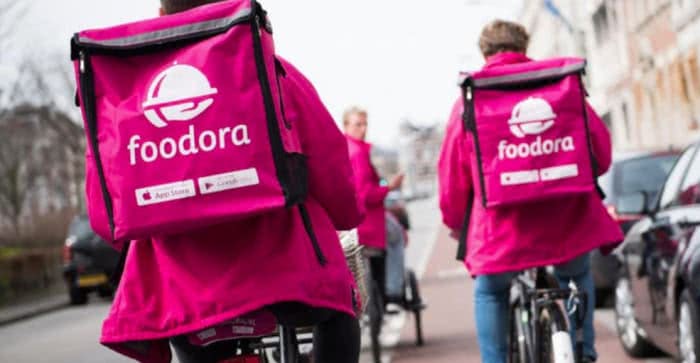The Fair Work Ombudsman is taking food delivery company Foodora to court for what they consider “sham contracting” which saw them underpay workers.
The case is around the employment of three specific delivery riders, but will have larger implications. Foodora are alleged to have made employees sign an ‘Independent Contractor Agreement’ – which the FWO deem illegal.
As the Fair Work Ombudsman explained in a press release, they “examined the nature of the relationship between Foodora and the three workers” using the following factors.
- the level of control, supervision and direction Foodora exercised over the workers’ hours, location and manner of work;
- the requirement for the workers to wear a Foodora-branded t-shirt and use food storage boxes and/or bike racks supplied by Foodora;
- Foodora paid the workers fixed hourly rates and/or amounts per delivery and the workers did not negotiate their rates of pay at any time; and
- each of the workers was not genuinely conducting their own delivery business, in that they: did not advertise or promote their availability to perform deliveries to the public; did not delegate their delivery duties with Foodora to any other person; and did not have their own customer base, business premises and insurances.
They found the workers were in fact operating as Foodora employees and “entitled to minimum wages and conditions under the Fair Work Act or ‘independent contractors’.” This includes casual loading and penalty rates for evening and weekend work.
Fair Work Ombudsman Natalie James explains: “Relevant to the decision to litigate in this case is the extent to which contracting arrangements are utilised by this significant business.
“There has been broad community and academic debate about the status of ‘models’ using smartphone-driven technology as a means for deploying a workforce that delivers food to consumers from restaurants and fast food outlets.
“The only way to answer the question of whether the workers delivering the meals are employees or ‘independent contractors’ is for someone to ask a court to consider the specific ‘relationships’ between a company and its workers.
“As the national workplace relations regulator, the Fair Work Ombudsman is now putting this question of significant public interest before a court to consider.”
She adds this case should be seen as a warning shot to companies operating in a similarly unlawful way.
“Courts have found again and again that merely labelling the relationship to be one of independent contracting does not make it so, and it is the substance of the relationship that decides the status of the workers and the regulatory requirements that flow,” she said.
“The activity of delivering food from restaurants and fast food outlets to customers is not new, and nor is the ‘test’ for what determines who is and is not an employee entitled to award rates.”
The company has breaches numerous conditions, and faces penalties of up to $54,000 per contravention.


































